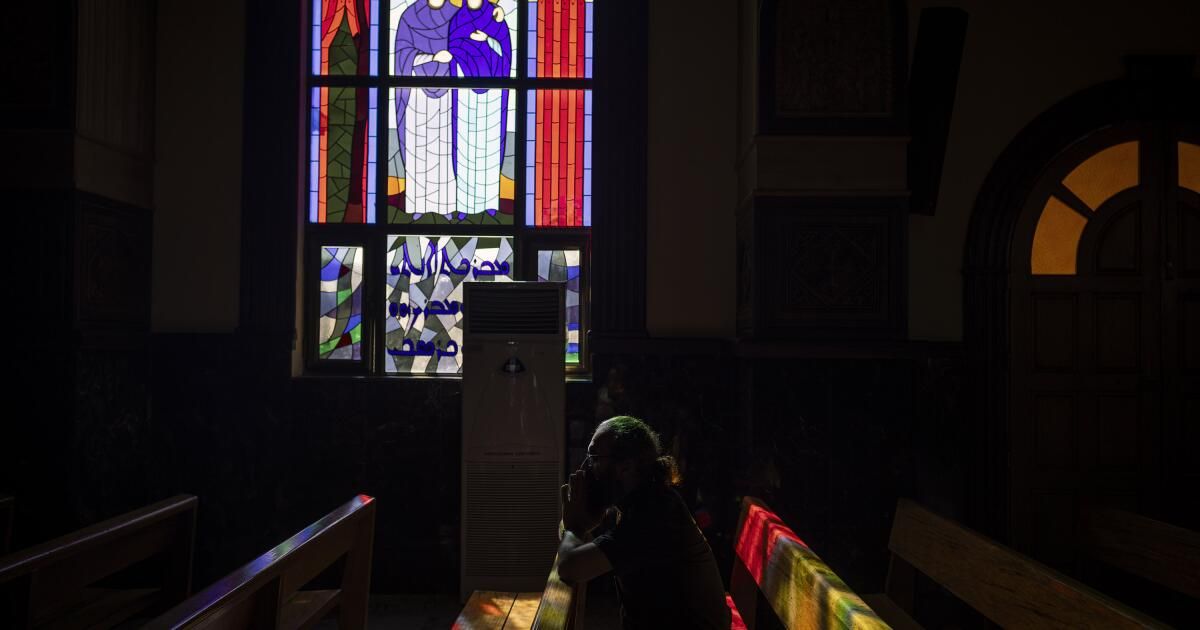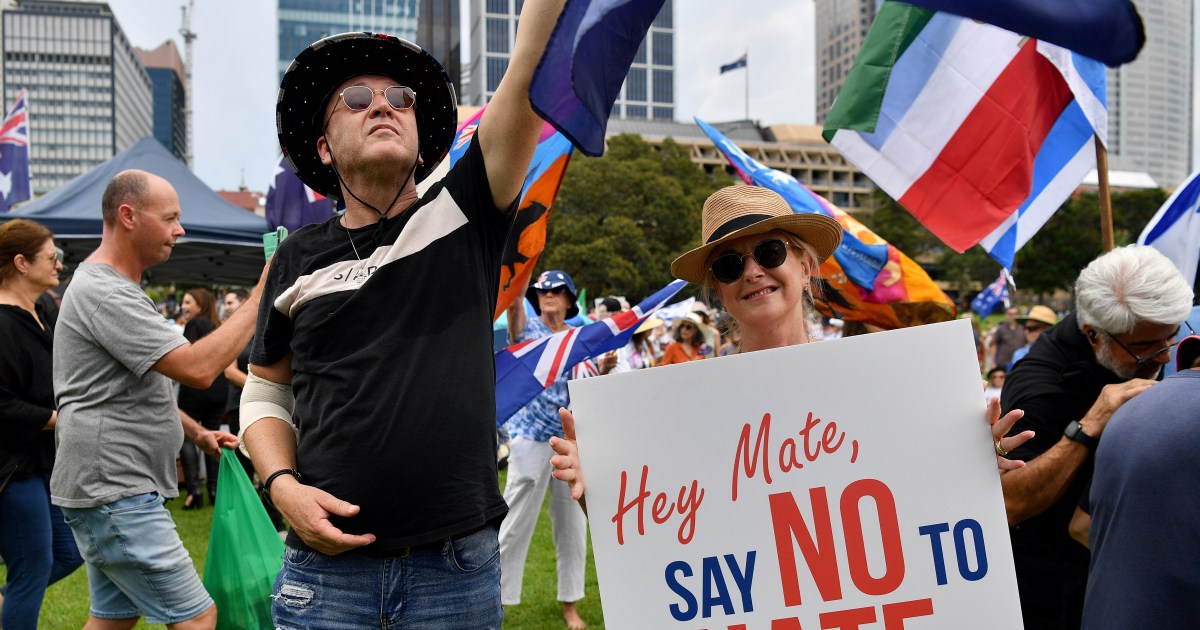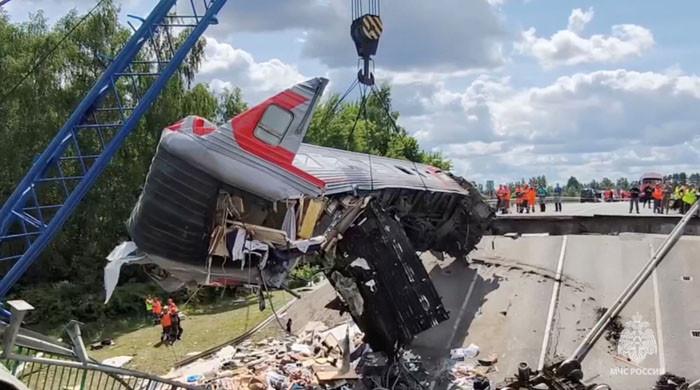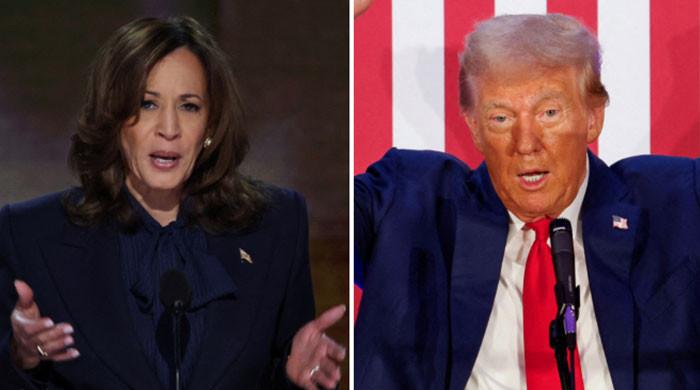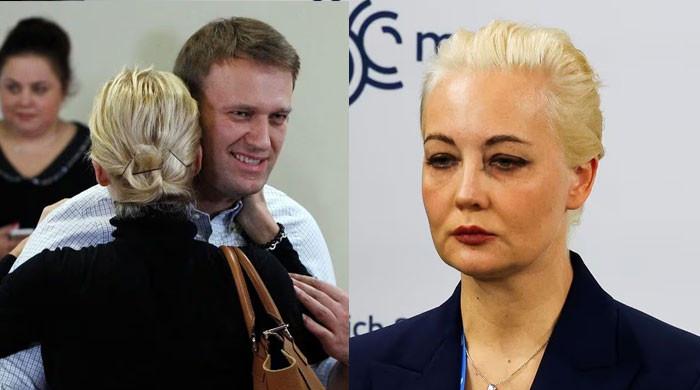From her balcony on the outskirts of this border town with Lebanon, Greta Nakhleh-Allam, 33, can see Israel in almost every direction.
And every morning, when the bombardment between the Israeli army and Hezbollah militants begins again, one wonders whether the fighting will end or escalate into a full-blown conflagration.
“I'm tired of this war, tired of the life we lead,” said Nakhleh-Allam, watching her 11-year-old son Jacob chase the family dog, Bella.
“We thought it would last a week. Then we thought it would last a month. Christmas passed. New Year passed. Easter passed. And we are still waiting for the fighting to end. And now they say it will get bigger.”
Clerics celebrate Palm Sunday in Rmeish, a Lebanese village near the border with Israel, on March 24, 2024.
(Mohammed Zaatari / Associated Press)
That question — will the fighting end or intensify? — is being asked across Lebanon these days, but perhaps nowhere more urgently than in Rmeish. This town of about 11,000 people, the largest of a dozen Christian areas scattered across the Hezbollah-dominated south, is on the front line of a struggle that few here claim as their own.
“It is not our cause. It is not our business to do this for us. [Hamas leader Yahya] “Sinwar,” said Said Allam, a 42-year-old former soldier and now a supermarket owner. Sinwar is believed to be the mastermind of the Oct. 7 attacks in southern Israel that killed about 1,200 people and sparked a fierce counteroffensive in Gaza that health officials say has claimed more than 38,000 lives.
The day after the war between Israel and Hamas broke out, Hezbollah — a Shiite Islamist paramilitary group and political party that is part of an alliance with Hamas — fired rockets into Israel in a “solidarity campaign.” Israel retaliated, and Allam saw half of his neighbors join the more than 90,000 Lebanese displaced by the violence; in northern Israel, about 60,000 have been evacuated.
Economic life in Rmeish came to a standstill. Most tobacco farmers were unable to reach their fields, losing not only their crops — the main source of income here — but also the opportunity to plant for the next season. Summer engagements and weddings, which bring in $2 million in annual business to restaurants, were canceled or relocated. And the Lebanese expatriates who thronged the village during vacations and holidays have mostly stayed away.
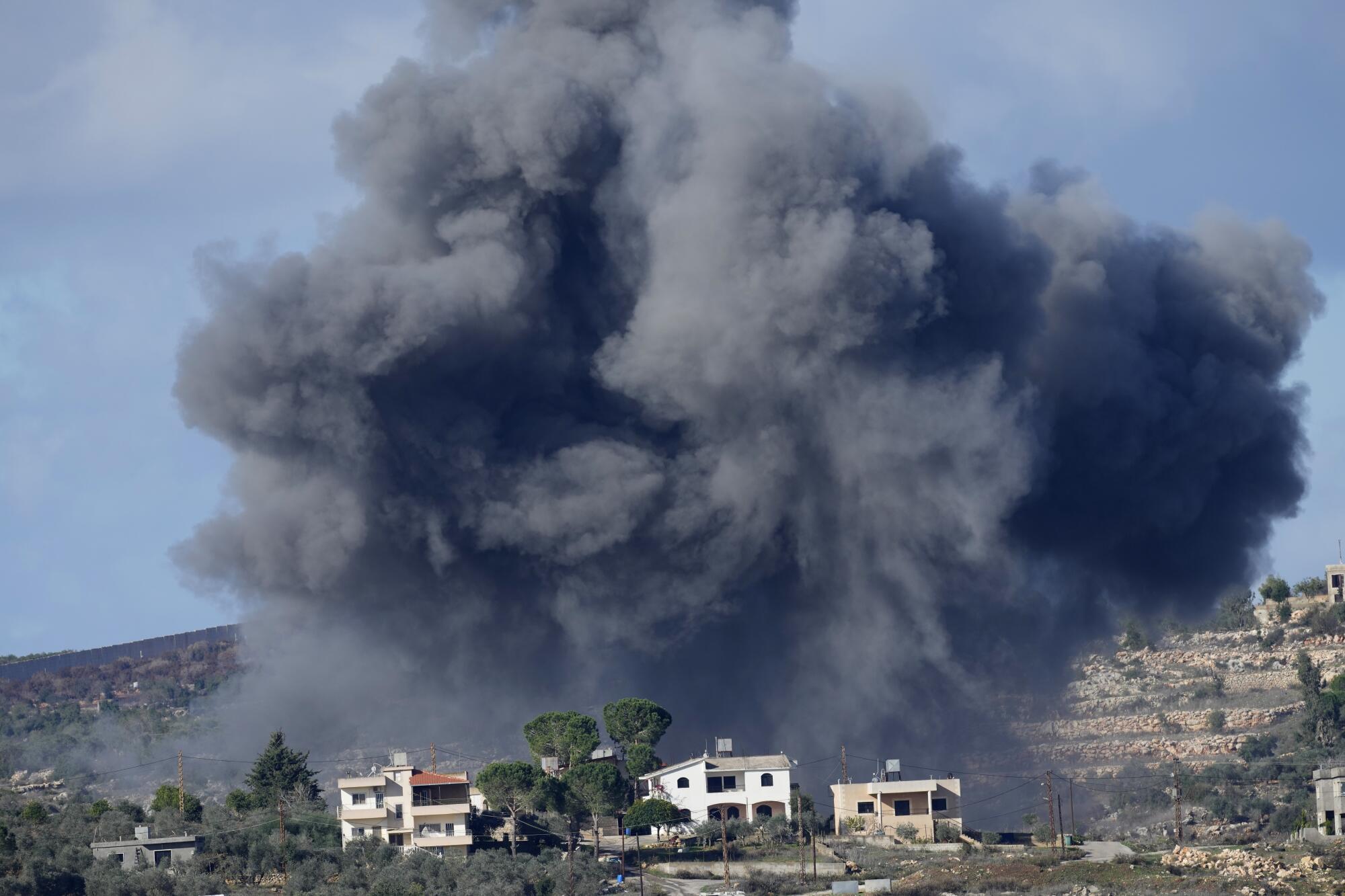
Black smoke rises after an Israeli airstrike outside Aita al-Shaab, a Lebanese border village as seen from Rmeish in southern Lebanon on November 21, 2023. Tension has been rising along the Lebanese-Israeli border following the October 7 attack by the Palestinian militant group Hamas in southern Israel.
(Hussein Malla/Associated Press)
“I've invested half a million dollars in this store and I'm just watching it lose money,” Allam said, pointing to a row of well-stocked shelves.
As if addressing Hezbollah, he added: “You want Jerusalem? Go for it, but not in this way, because you have destroyed the whole world with you.”
Allam's frustration — shared by many here — goes to the heart of the schism around Hezbollah and, more broadly, Lebanese society's support for the Palestinian cause.
Hezbollah has a long history of clashes with Israel. Its support for Gazans has earned it praise among Lebanon's Sunnis and the broader Arab world, where people contrast the group's activism with the inaction of their own governments.
But many Lebanese also remember the late 1960s, when Palestinian factions turned the south into what some called “Fatahland” (a reference to Fatah, the largest of them) and used it as a staging ground for attacks on Israel.
In 1982, Israel invaded Lebanon in an attempt to defeat Palestinian fighters and create a buffer zone, a campaign that morphed into an occupation that led to the rise of an Iranian-backed Shiite Islamist group that became Hezbollah. After the Israelis withdrew in 2000, Hezbollah (by then not only a guerrilla force but also a well-organized political and social party) kept its weapons, arguing that “Islamic resistance” was the only deterrent against future Israeli attacks.
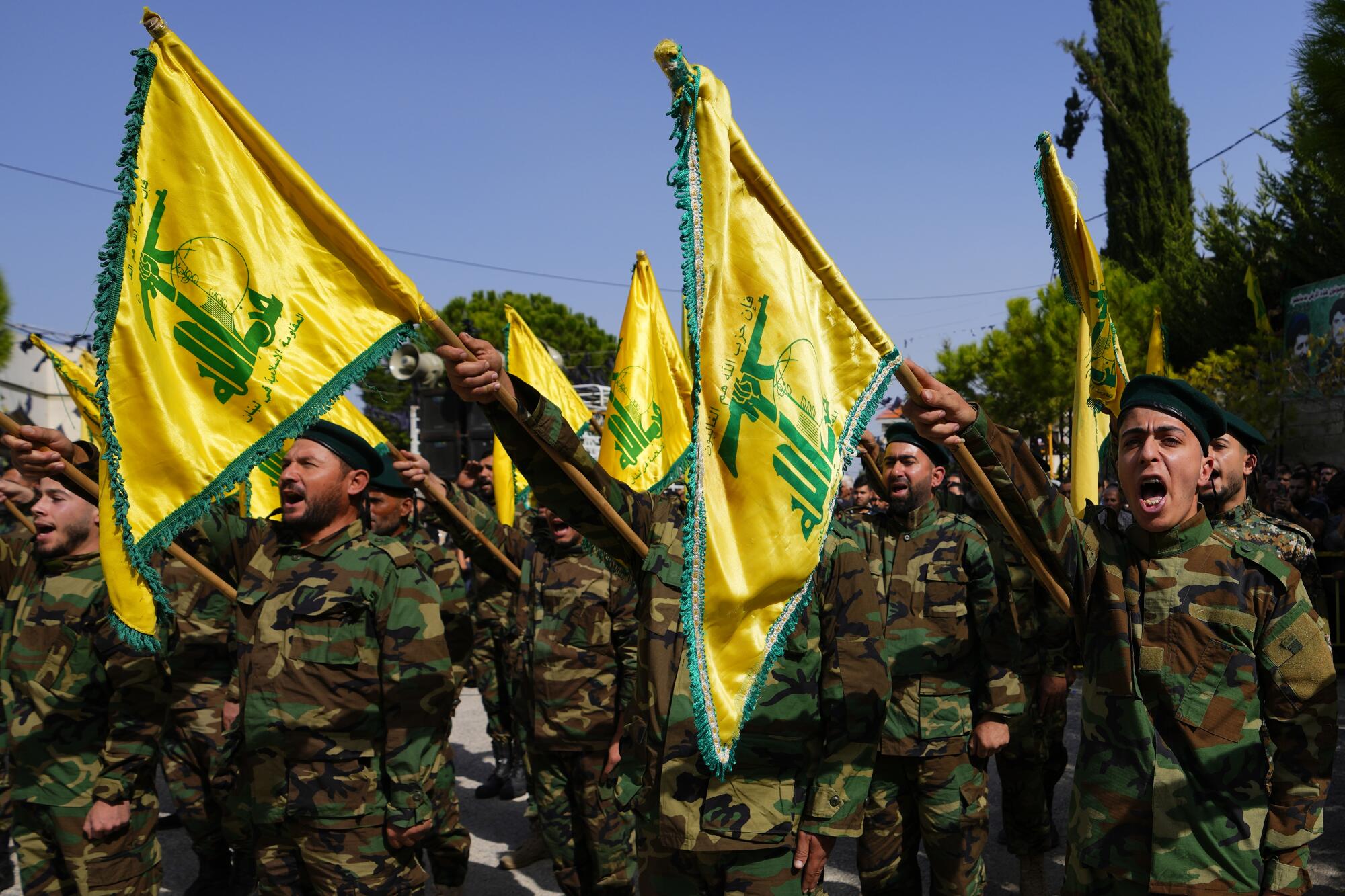
Hezbollah fighters in the village of Majadel in southern Lebanon raise their group's flag and shout slogans as they attend the funeral procession of Bilal Nemr Rmeiti, a fellow fighter killed by Israeli shelling on October 22, 2023.
(Hassan Ammar/Associated Press)
In 2006, the two sides fought a devastating war that killed an estimated 1,200 Lebanese, most of them civilians, and left large parts of Lebanon razed to the ground before the situation ended in a stalemate. Rmeish was damaged, though not as badly as Shiite villages loyal to Hezbollah. Instead, it became a refuge for some 30,000 people fleeing the violence.
The end of the war brought relative peace. Until nine months ago, both sides had maintained a cautious but cordial distance, with only occasional exchanges of fire.
If a wider war were to break out, Israeli officials have vowed to inflict greater destruction than in 2006. Israeli Prime Minister Benjamin Netanyahu recently threatened to “turn Beirut into Gaza.”
But Israeli military planners acknowledge that Hezbollah, with more than 100,000 fighters and advanced weaponry, would be a much tougher foe than Hamas, which could strike deep into Israel. And Hezbollah leader Hassan Nasrallah has said any Israeli offensive would encourage fighting “without restrictions, without rules and without limits.”
But Hezbollah must take into consideration other communities in Lebanon, said Michael Young, a Lebanon expert at the Carnegie Middle East Center.
“Everyone knows that war is the worst option, and yet Hezbollah has led the country into this conflict,” he said. “Hezbollah is aware that if the situation gets out of control, its position will be harmed. They want to avoid that.”
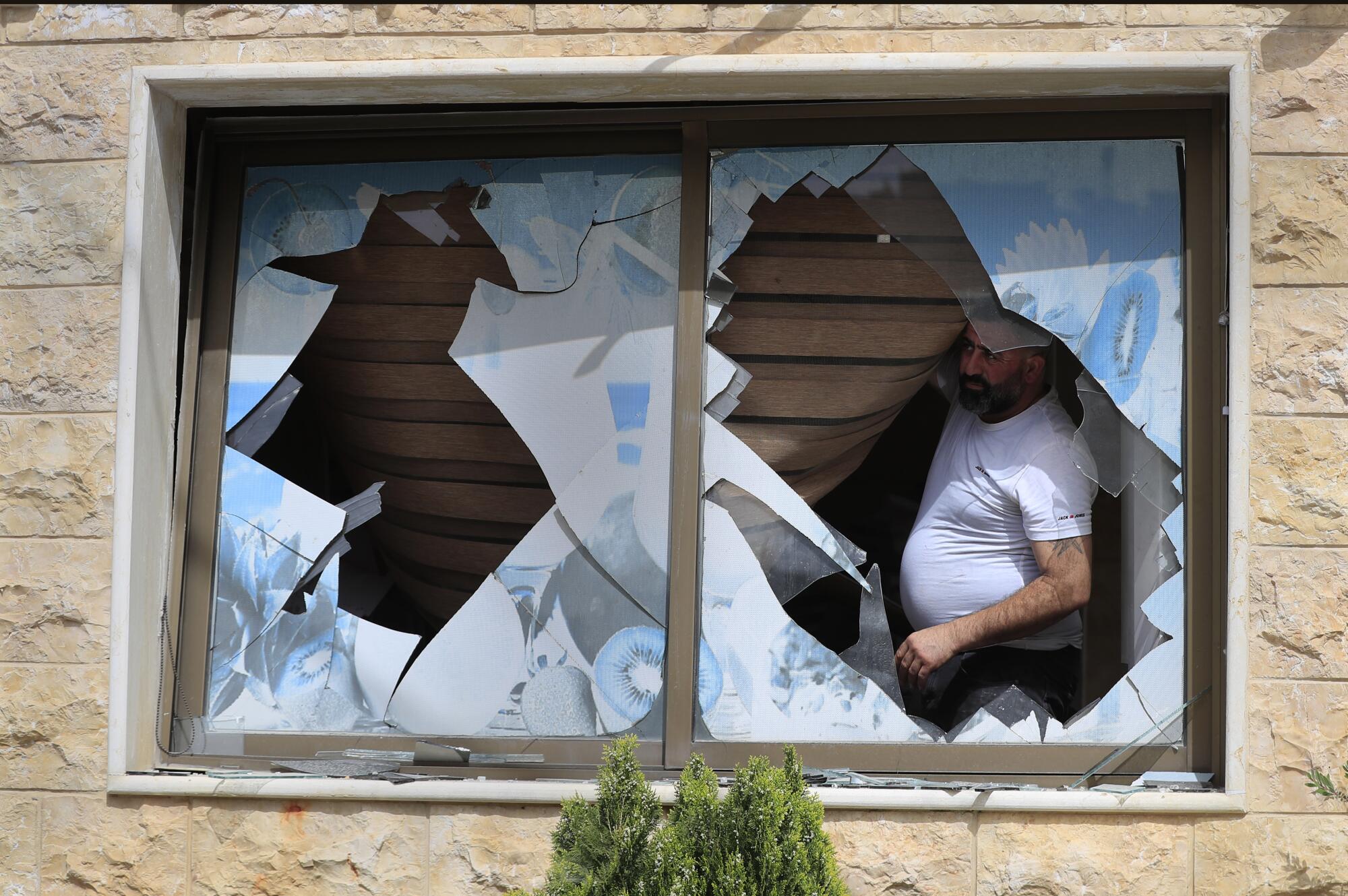
A villager looks through a window damaged by Israeli shelling in Kfar Kila, a southern Lebanese village near the border with Israel, April 18, 2024. Hezbollah militants and Israeli forces have been exchanging fire after the war between Israel and Hamas began on October 7, 2023.
(Mohammad Zaatari / Associated Press)
Among displaced residents of now-empty Shiite villages in the south, support remains strong, at least outwardly.
“We, the people of the south, it is our children, sisters and loved ones who are being killed to protect our country,” said Balqis Dawood, a 50-year-old housewife from Kfar Kila, one of the towns hardest hit by Israeli bombing.
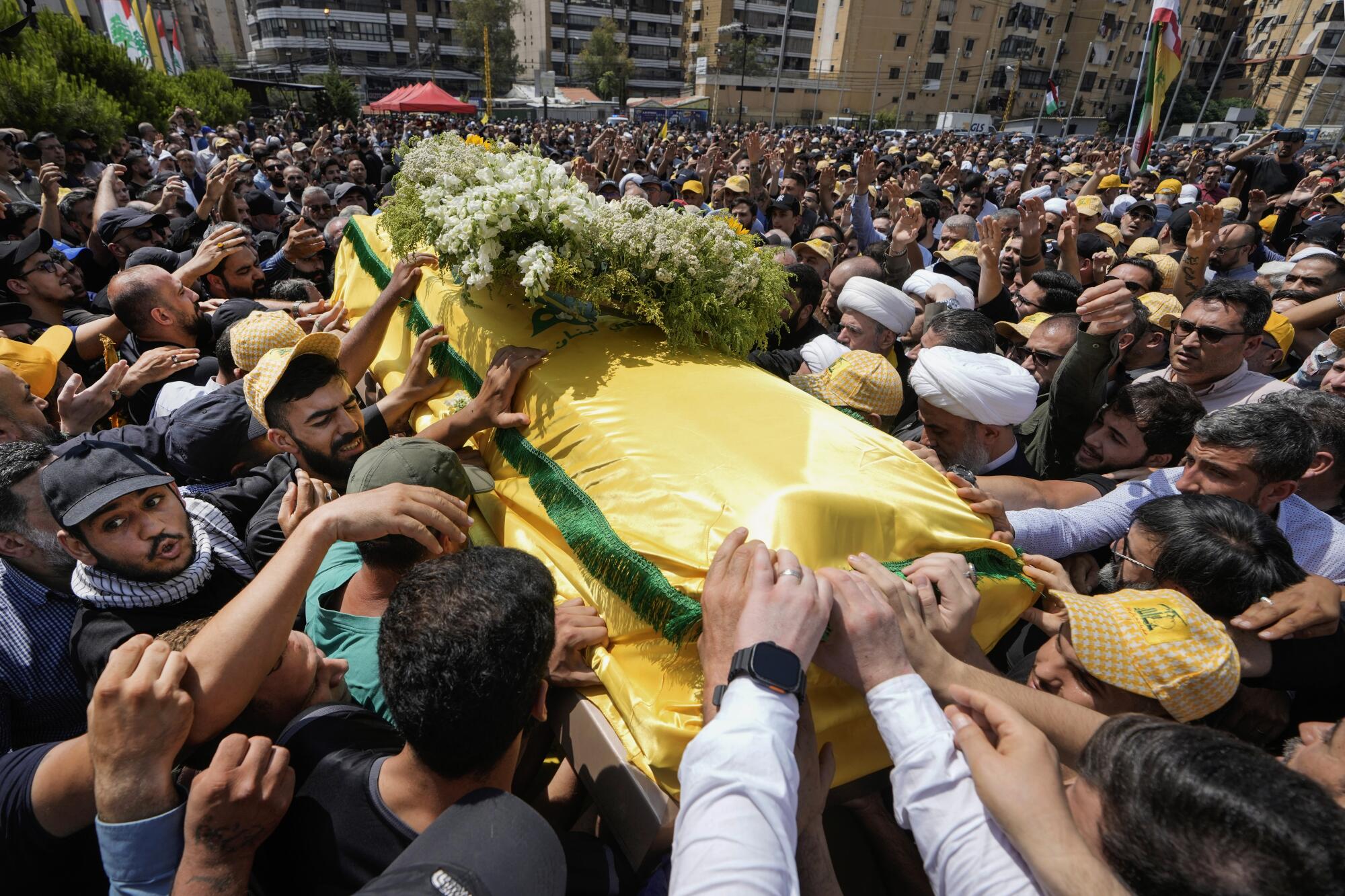
People carry the coffin of senior Hezbollah commander Taleb Sami Abdullah, 55, during his funeral procession in the suburbs of Beirut. He was killed in an Israeli strike on June 11, 2024.
(Bilal Hussein / Associated Press)
At the funeral of a senior Hezbollah leader killed by Israel this month, Dawood was defiant, saying that although his home had been destroyed and his family displaced, they would return and rebuild. To those of his countrymen who questioned Hezbollah’s fight, he said: “We are the people of resistance. Those who don’t like it should leave Lebanon.”
Nearby was Ali, 33, who works at a protein supplement company and is a Hezbollah reservist. Dressed in military fatigues and a crimson beret, he said he would fight in the south if called up.
“If someone comes into your house and invades it, you don’t do anything?” he said. “The Israelis have said that after Gaza they will come here. So we are going to stop them.”
There has been talk in Israeli political circles of reoccupying southern Lebanon as a buffer zone against Hezbollah, a development that would likely see Rmeish fall under Israeli control.
It would not be the first time. During the Israeli occupation, villages in southern Lebanon such as Rmeish became part of an Israeli-backed mini-state. Men of fighting age were forced to join the South Lebanese Army (many of their own free will) and carried out security operations alongside Israeli troops, including imprisoning and torturing their compatriots.
Others established economic links: some 4,000 Lebanese crossed the border each day to work on farms and industrial zones in the Galilee and Tel Aviv.
“All the fancy houses you see in Rmeish were built with that money,” said Najib al-Amil, the 72-year-old priest of the Maronite Church in Rmeish.
“If you shouted in Hebrew on the street, three-quarters of the people here would shout back,” said one shopkeeper, who did not give his name to avoid harassment.
Few would accept another occupation.
“I know Israel has plans to attack the area, but I cannot stop them with a gun,” Al-Amil said, a hint of exasperation in his voice. “Intensify or stop, war or no war. But now there is no war and no peace. This cannot continue.”
Young, of the Carnegie Middle East Center, said the reoccupation to create a buffer zone ignores the long-range arsenal Hezbollah has at its disposal, rendering useless any security cushion the Israeli military could realistically create in Lebanon.
“There will be no stability in northern Israel unless there is stability in southern Lebanon,” Young said. “The best the Israelis can hope for is a negotiated settlement or a return to the status quo.”
So far, Rmeish has stayed out of the fighting, although Hezbollah uses the forests and grasslands outside the village to launch attacks on Israel. In March, when gunmen came to set up a mobile rocket launcher in the village, residents rang church bells to scare them off; Hezbollah denied involvement, but agreed with village leaders to keep Rmeish out of its area of operations.
That has provided some comfort to residents, though less so as the months pass and hostilities intensify.
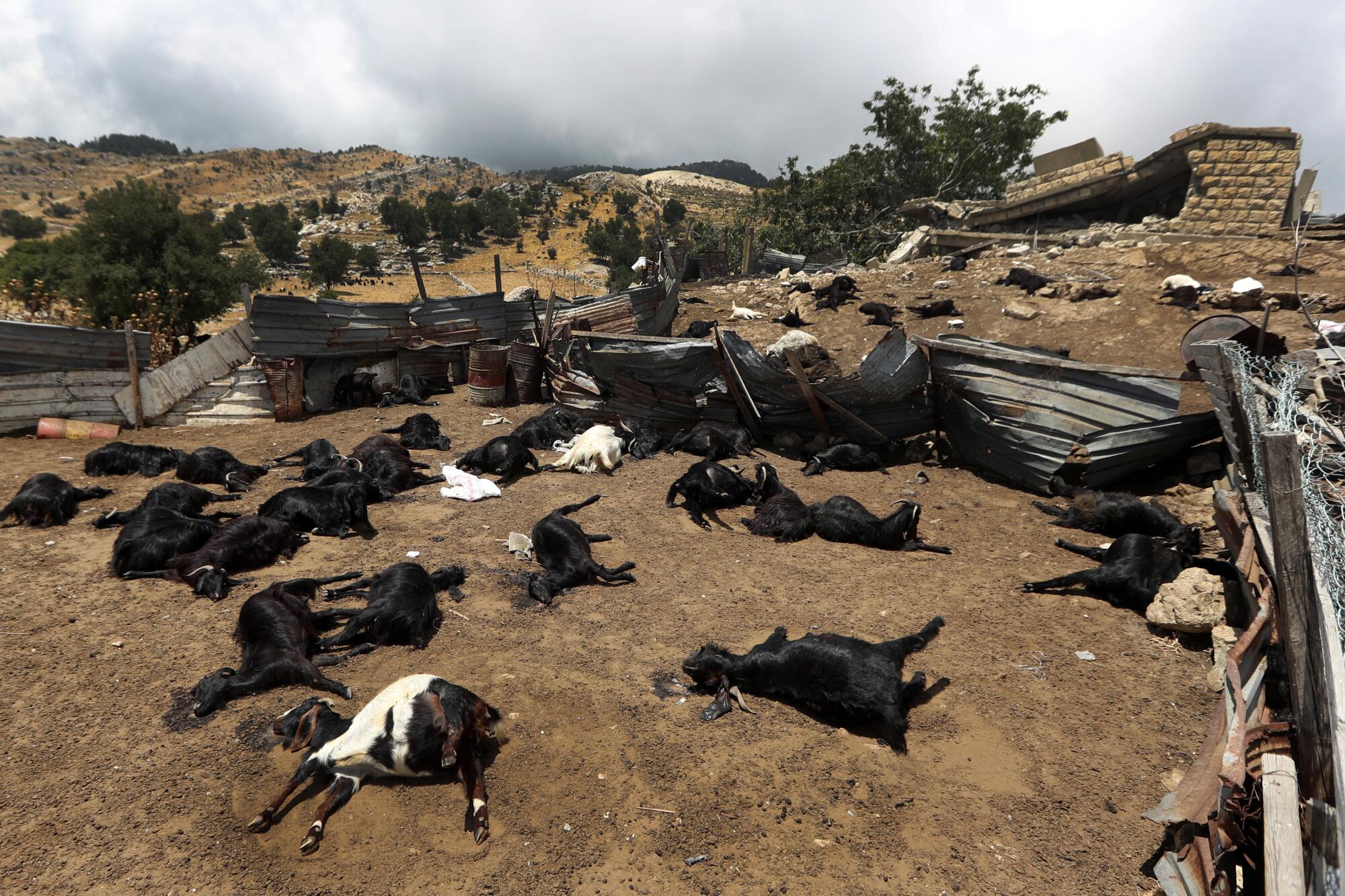
An Israeli airstrike that hit a house also killed hundreds of goats in the mountainous Toura region of southern Lebanon on July 8, 2024. The strikes come amid rising tensions between Lebanon's Hezbollah group and the Israeli military along the nations' border.
(Mohammad Zaatari / Associated Press)
“If this continues, there will be no problem, as long as we are not displaced,” said Allam, the supermarket owner. Still, he had taken precautions: He was sending his two sons, aged 21 and 18, to Munich, Germany, to look for work.
“I wanted them to stay here and build something together in this town that we all love, but everything tells me there is no future,” he said.
Allam said he sees his presence in Rmeish as a way of preserving Christianity in the area. He would stay no matter what, he said, pointing to the bullet wounds he received in the shoulder and stomach during his military service in 2007.
“This should have killed me, so now every day is a new life,” she said. “No matter what happens, I won’t leave.”

